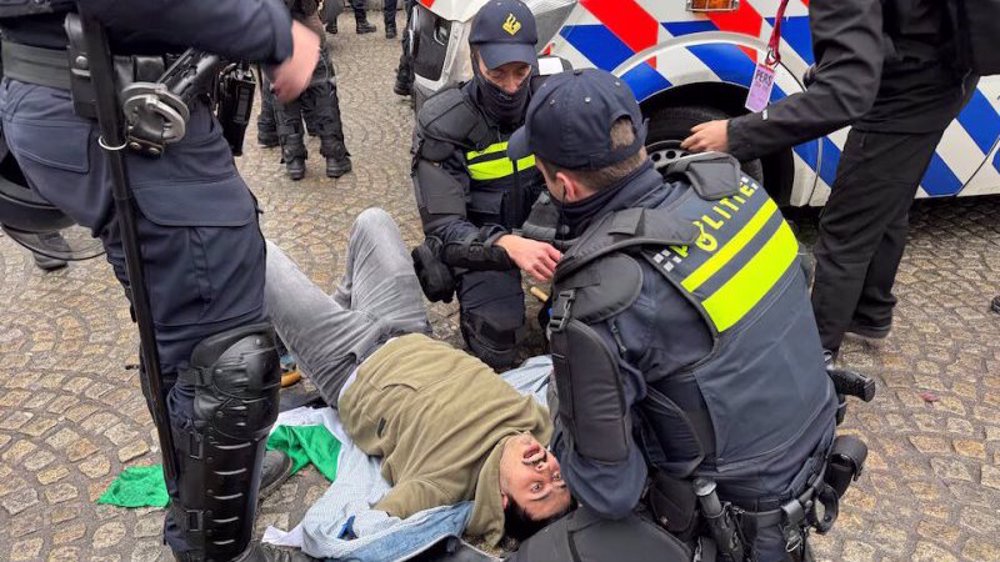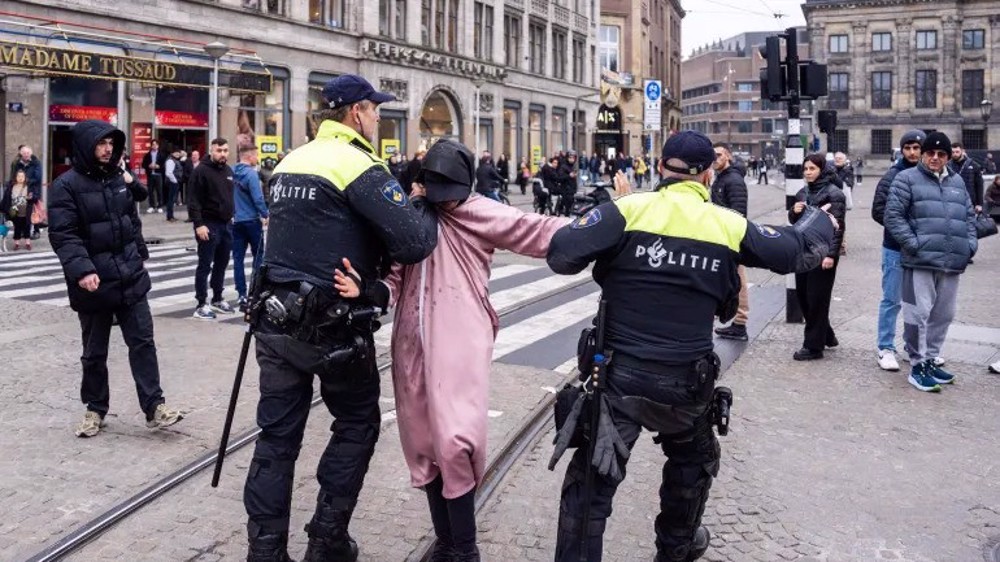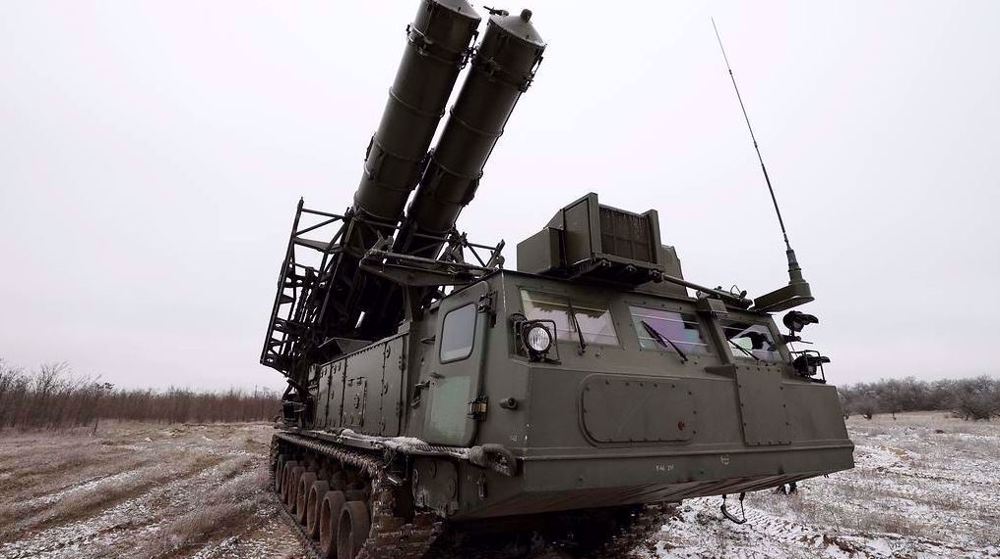EU defends ICC after US sanctions on prosecutor
The European Union says it will defend the International Criminal Court (ICC) after Washington slapped sanctions on the Hague-based tribunal's top prosecutor probing whether American forces committed war crimes in Afghanistan.
Peter Stano, spokesman for EU diplomatic chief Josep Borrell, told reporters Thursday that the bloc was against attempts to undermine the the world’s permanent war crimes court.
"The International Criminal Court is facing persistent external challenges and the European Union stands firm against all attempts to undermine the international system of criminal justice by hindering the work of its core institutions," Stano said.
"We are committed to strengthen our support to the ICC because this is key factor in fighting against impunity. We are standing by the ICC and we are not happy to see steps which are going against the activities of the ICC."
The United States on Wednesday imposed sanctions on ICC prosecutor Fatou Bensouda over her investigation into whether American forces committed war crimes in Afghanistan, US Secretary of State Mike Pompeo said.
Pompeo said Phakiso Mochochoko, the head of the ICC’s Jurisdiction, Complementarity and Cooperation Division, had also been blacklisted under sanctions authorized by President Donald Trump in June that allow for asset freezes and travel bans.
The State Department also restricted the issuance of visas for individuals Pompeo said were involved in the court’s efforts to investigate US personnel, though he did not name those affected.
Pompeo also said that individuals and entities that continue to materially support Bensouda and Mochochoko would risk exposure to sanctions as well.
Trump in June had authorized sanctions and additional visa restrictions against the ICC personnel probing whether American forces committed war crimes in Afghanistan.
Pompeo at the time warned that if US troops were targeted, those of US allies in Afghanistan risked the same treatment.
Washington has long rejected the ICC's jurisdiction over US citizens, but the court's probe into allegations of atrocities in Afghanistan has seen President Trump's administration turn low-level opposition into a concerted campaign against the institution.
Bensouda was given the go-ahead by the court in March to investigate whether war crimes were committed in Afghanistan by the Taliban, Afghan military and US forces.
In 2006, the ICC's prosecutors opened a preliminary probe into possible war crimes and crimes against humanity committed in the Asian nation since 2003.
In 2017, prosecutor Bensouda asked judges to allow a full-blown probe, not only into the Taliban and Afghan government personnel but also international forces, US troops and members of the CIA.
Washington revoked Bensouda’s entry visa last year over the possible Afghanistan inquiry. But under an agreement between the United Nations and Washington, she was still able to regularly travel to New York to brief the UN Security Council on cases it had referred to the court in The Hague.
The ICC also condemned the US administration for imposing sanctions on the international tribunal's prosecutor, describing the ban as an attack on international justice and the rule of law.
The sanctions are “unprecedented and constitute serious attacks against the Court, the Rome Statute system of international criminal justice, and the rule of law more generally,” the court said in a statement.
Trump team drawing up list of Pentagon officers to fire: Sources
IRGC Ground Force disbands terrorist team in southeastern Iran
Resistance front to deliver ‘painful’ blows to enemies: IRGC chief
UNRWA chief warns of 'catastrophic consequences' of Israeli ban on agency
Israel hits south Beirut with strikes again
Iran will make Israel ‘regret’ its act of aggression: IRGC Cmdr.
VIDEO | Conference explores peace dynamics in West Asia
US appeals court overturns 1983 Beirut bombing victims' judgment against Iran













 This makes it easy to access the Press TV website
This makes it easy to access the Press TV website